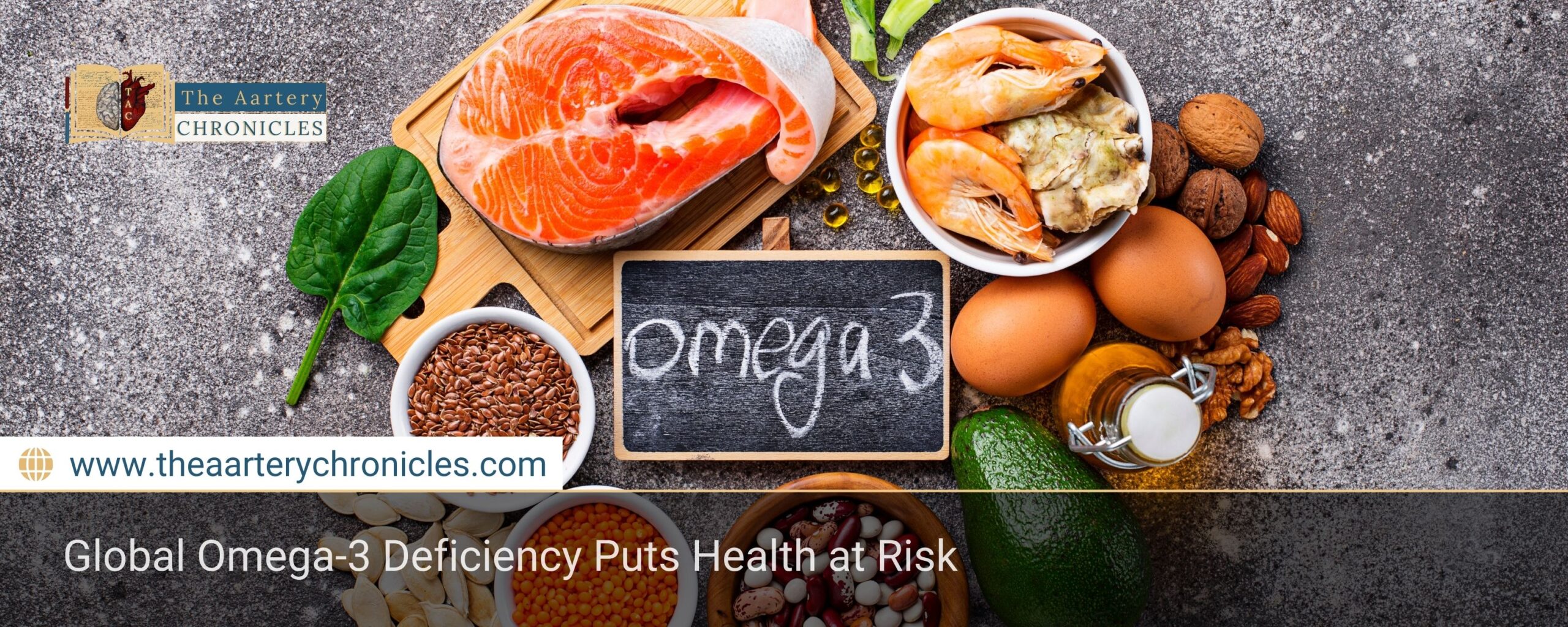

Are You Getting Enough Omega-3s? 85% of People Aren’t
Summary: A new study warns of a global omega-3 deficiency affecting 85% of people worldwide. Environmental damage, overfishing, and dietary imbalance are to blame. Scientists urge action to improve access to clean, omega-3-rich foods and restore balance with omega-6s to lower the risk of chronic diseases like heart disease, cancer, and mental health issues.
Global Omega-3 Deficiency Puts Health at Risk
Omega-3 deficiency is quietly becoming a global health crisis, and most of us don’t even realise it. According to a new study by Case Western Reserve University, a staggering 85% of the world’s population isn’t getting enough omega-3 fatty acids in their diets. These essential nutrients play a key role in brain, heart, and endocrine health, yet our modern food systems are failing to deliver them.
“Our current food systems are not providing enough uncontaminated omega-3,” said Timothy Ciesielski, lead researcher and scientist at the university’s School of Medicine.
“And our access is expected to decrease in the near future.”
Let’s explore what omega-3s do, why they’re vanishing, and how we can fix this global imbalance.
Why Omega-3 Fatty Acids Are Vital for Your Body
Omega-3 polyunsaturated fatty acids are essential fats that support:
- Brain and eye development
- Cardiovascular and endocrine function
- Cellular health and energy production
Since our bodies can’t make enough omega-3s naturally, we must rely on food sources to meet our needs, like
- Fatty fish (salmon, sardines)
- Flaxseeds
- Chia seeds
- Supplements
The Alarming Global Shortage of Omega-3s
The study, published in AJPM Focus, found that environmental challenges are contributing to a global omega-3 shortage:
- Rising ocean temperatures
- Overfishing
- Pollution
This means not only are fewer people able to access omega-3-rich foods, but even the foods available may be contaminated or nutritionally compromised.
“This has serious and widespread health implications,” Ciesielski warned.
“This isn’t just a healthcare issue; it’s a public health and environmental challenge.”
Also Read: Benefits of Omega Fatty Acids
The Omega-6 Imbalance: A Modern Problem
Historically, humans ate diets with a healthy balance of omega-3 to omega-6 fatty acids. But today’s diets, especially in industrialised nations, contain about 20 times more omega-6s than omega-3s. This imbalance can fuel chronic inflammation, leading to:
- Heart disease
- Cancer
- Preterm birth
- Mental health disorders
Reducing omega-6 intake (found in vegetable oils and processed foods) and increasing omega-3 consumption is crucial.
How Oceans and Sustainability Affect Omega-3 Access
Only about 15% of countries currently meet the recommended omega-3 intake levels, mostly those with direct ocean access. This suggests that:
- Protecting marine ecosystems
- Sustainable fishing
- Investing in algae-based omega-3 sources
…could help secure a cleaner, more reliable supply of this essential nutrient.
“Everyone should have the right to uncontaminated omega-3s in their diet,” said Ciesielski.
“These are important questions that require our collective attention and action.”
What You Can Do to Protect Your Health
- Eat more omega-3-rich foods: salmon, mackerel, walnuts, flaxseeds, chia seeds
- Cut down on omega-6s: avoid vegetable oils and highly processed snacks
- Choose clean, sustainable omega-3 supplements
- Support environmental policies that protect oceans and regulate overfishing
Conclusion: This Is a Wake-Up Call for Us All
The omega-3 crisis isn’t just about diet, it’s about
- Global health
- Food security
- Environmental sustainability
If 85% of people aren’t getting enough, we need to rethink our food systems, protect marine sources, and reclaim nutritional balance in our diets.
Because when omega-3 levels fall, the risk of disease rises and that affects all of us.

Dane
I am an MBBS graduate and a dedicated medical writer with a strong passion for deep research and psychology. I enjoy breaking down complex medical topics into engaging, easy-to-understand content, aiming to educate and inspire readers by exploring the fascinating connection between health, science, and the human mind.








